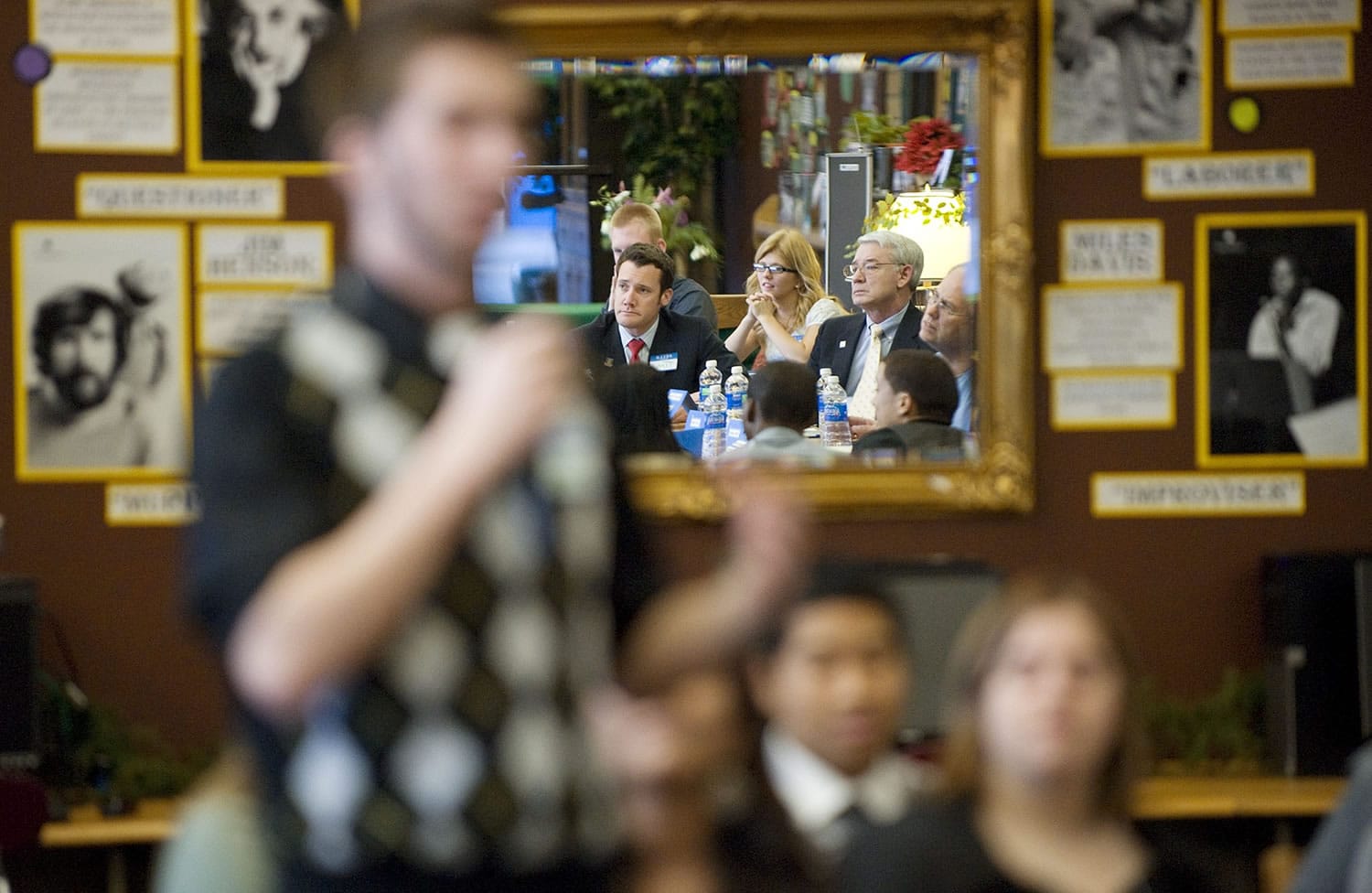When Sammy Magana walks down the hallways of Mountain View High School, she’s often troubled by the overheard conversations.
She hears teenagers like her talking about going to parties, drinking and using drugs. They talk as if they’re planning a trip to the mall.
“They do it so casually,” she said, “like it’s so normal.”
Her classmate Tevin Green agreed.
“It’s become almost socially acceptable to our generation,” he said.
Magana, Green and a handful of other students in Mountain View’s Prevention Club sat down with community leaders Friday and discussed ways to keep their peers drug- and alcohol-free.
And they’ve got their work cut out for them. In the most recently Health Youth Survey, about 22 percent of Clark County 12th-graders admitted to binge drinking (consuming five or more drinks in a row).
While many students may not agree with their peers’ decision to use drugs and alcohol, they don’t voice their disapproval, Green said.
Students don’t want to be seen as judgmental if they speak out, Fabien Celestin said.
But the adults in the room weren’t going to let the students go unchallenged.
“Why can’t you create peer pressure that is the opposite direction?” asked Rick Terrell, chairman of the board of RS Medical in Vancouver.
Confront classmates. Tell them the cost and impact their decisions have on their community, Terrell said.
The students agreed peer pressure still exists in high schools but not as it’s often portrayed in movies. Students don’t go around campus trying to get others to use drugs. Rather, students start experimenting because their friends are.
“The biggest pressure, I think, at Mountain View, is, you feel like an outcast if you don’t do it,” Mandy Lathim said.
Finding a group, a sport or another interest to use as an outlet gives students a sense of purpose and a reason not to use drugs, Lathim said. For her, it’s student leadership. This year, as a senior, Lathim is the student body vice president.
The students and local leaders agreed that prevention, rather than enforcement, is the best course of action.
“What’s readily apparent to law enforcement, policymakers, community leaders and you all is, enforcement is not the solution. It’s part of the solution,” Vancouver Mayor Tim Leavitt said.
Pat Moore, a detective sergeant with the Clark-Skamania Drug Task Force, said reaching teens is important for prevention work to be successful. Moore told the students he has interviewed hundreds of drug dealers in his career, and “99.9 percent started using when they were your age, in high school.”
Clark County Commissioner Marc Boldt echoed Moore’s sentiments.
“We need prevention that comes from you, because you know what keeps kids off drugs,” he said.
The students suggested the prevention start earlier. Begin efforts when kids are in middle schools rather than high schools, they said.
In middle school, students consider their classmates’ drug and alcohol use unacceptable. That changes in high school.
“You get to high school, and suddenly it seems acceptable,” Anthony Jeffries said. “You wonder, ‘Is that the message we’re sending?’”
Mountain View Principal Mike Meloy suggested more student-led activities that show kids that others are also committed to living drug- and alcohol-free.




